🐕 Puppy Breeds Guide: the Best Puppy for Your Family
🐾 Introduction
Adopting a puppy is one of the most rewarding experiences in life. But it also comes with big responsibilities — and the first days at home will set the tone for your puppy’s confidence and happiness.
This complete puppy adoption guide walks you through every step — from choosing where to adopt to preparing your home, understanding the first vet visits, and building a lasting bond.

❤️ Step 1: Decide Where to Adopt
There are several ways to adopt a puppy — and the best option depends on your values, budget, and desired breed.
🐕 1. Animal Shelters
✔️ Most affordable
✔️ You save a life
✔️ Many puppies are already vaccinated and microchipped
💡 Shelter puppies are often mixed breeds — which means fewer genetic health problems and wonderful personalities.
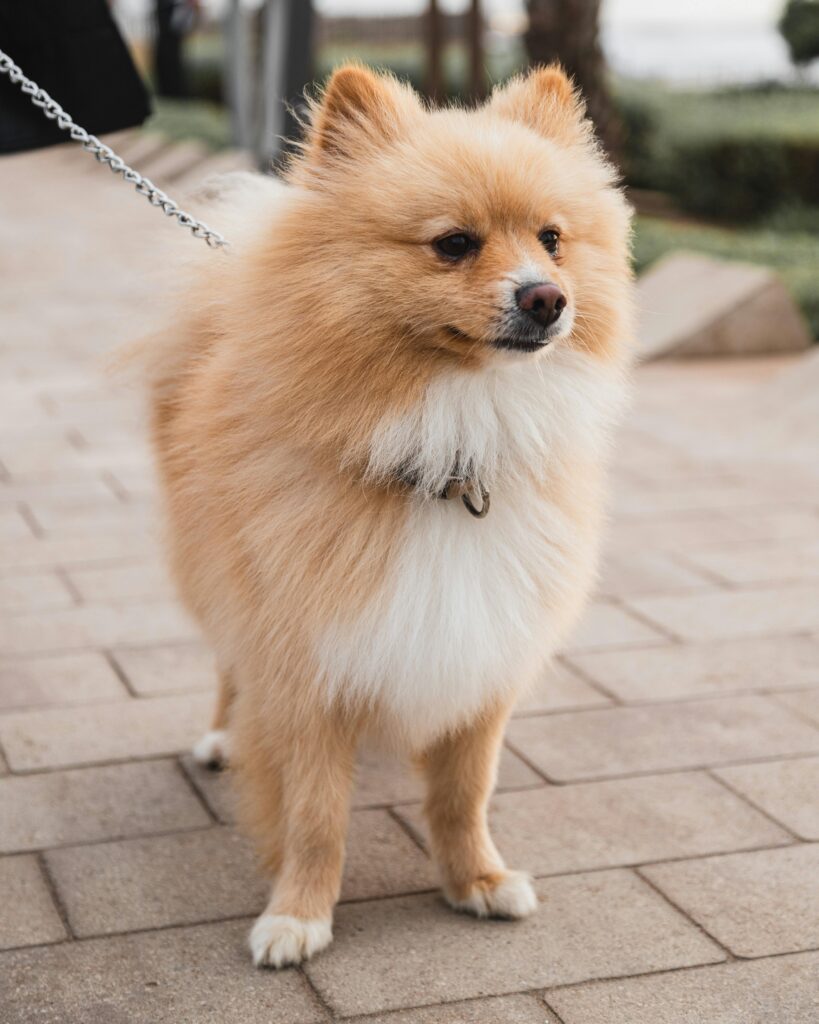
🐩 2. Rescue Organizations
✔️ Focused on specific breeds (like Golden Retriever Rescue or French Bulldog Rescue)
✔️ Volunteers can help match your lifestyle with the right dog
⚠️ May involve waiting lists or home checks, but you’ll get a dog with a known background.
🏡 3. Responsible Breeders
✔️ Ideal if you want a specific purebred puppy
✔️ Predictable size, coat, and temperament
⚠️ Always check certifications and meet the breeder in person to avoid puppy mills.
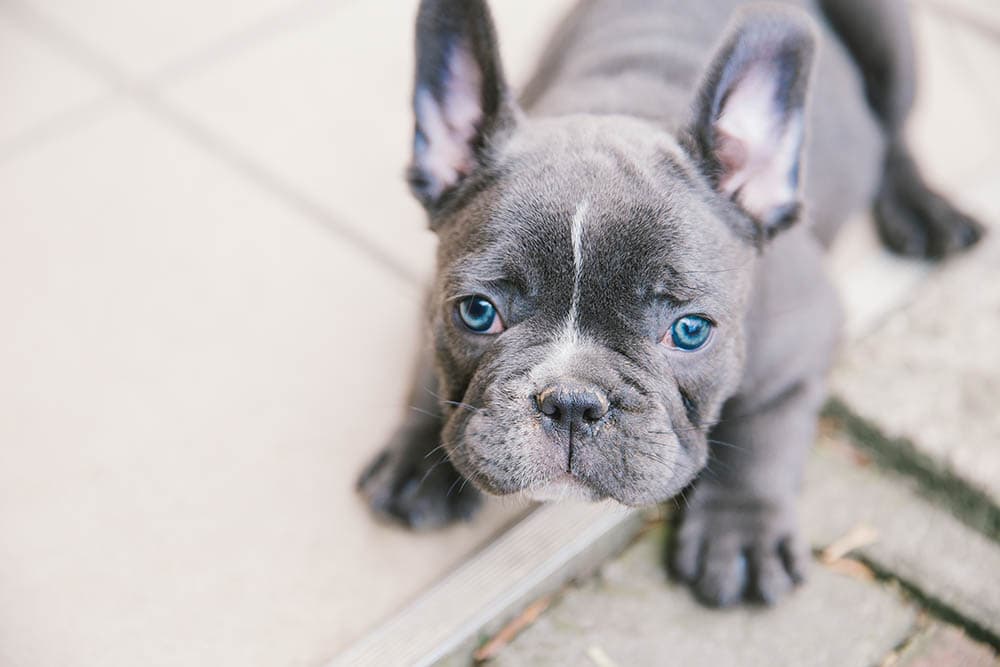
🏠 Step 2: Prepare Your Home
Before your puppy arrives, turn your space into a safe, cozy, and puppy-proof environment.
✅ Puppy-Proofing Checklist
- Remove cables, shoes, and small objects they might chew
- Secure garbage bins and cleaning supplies
- Block off dangerous areas (stairs, balconies)
- Set up a designated sleeping and feeding zone
- Have a crate or pen ready for rest and safety
💡 Think of it like baby-proofing your home — curiosity comes before caution for puppies!
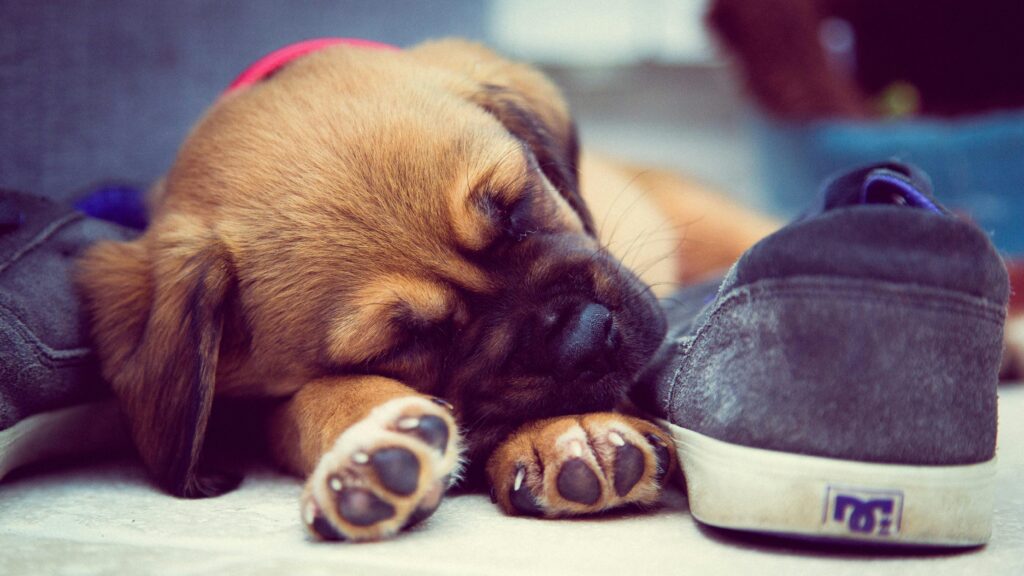
🎒 Step 3: Gather Essential Supplies
Here’s everything you need for the first week:
| Category | Essentials |
|---|---|
| Feeding | Puppy food, bowls (non-slip), measuring cup |
| Comfort | Bed, crate, blankets, chew toys |
| Training | Leash, collar or harness, poop bags, treats |
| Health | Brush, puppy shampoo, vet contact |
| Identification | Name tag with phone number, microchip |
🛒 Buy supplies before your puppy arrives — the first day should be stress-free and full of cuddles.
📅 Step 4: The First 24 Hours
The first day home is crucial — your puppy is discovering a new world, smells, and sounds.
💖 How to make it smooth
- Keep things calm — avoid visitors and loud noises
- Let your puppy explore the house slowly
- Introduce them to their sleeping space
- Feed a small meal and allow time to rest
- Expect crying the first night — it’s normal
💬 Stay patient. A calm start builds long-term trust.
🌙 Step 5: Surviving the First Night
Most puppies cry during their first few nights — they miss their mother and siblings.
💤 Tips to help your puppy sleep:
- Place their crate near your bed for comfort.
- Use a ticking clock or soft toy to mimic litter warmth.
- Take them out for a last potty break right before bed.
- Keep lights low and talk softly.
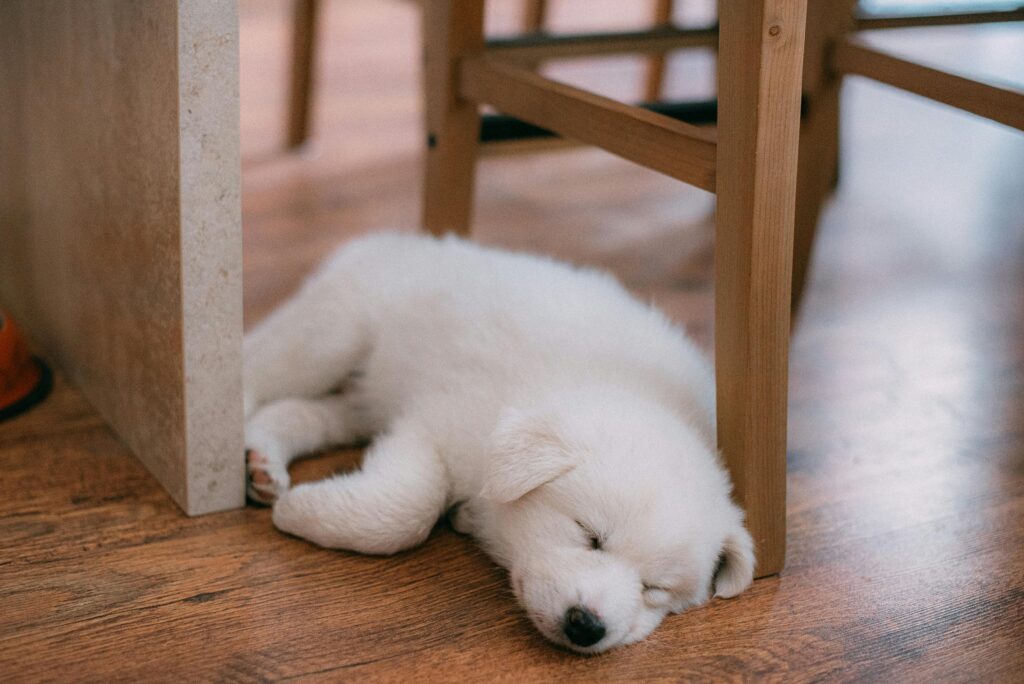
🧍 Step 6: Establish a Routine
Consistency helps your puppy feel safe.
| Time | Routine Example |
|---|---|
| 7:00 am | Wake up + potty break |
| 7:15 am | Breakfast |
| 8:00 am | Short walk or play |
| 12:00 pm | Lunch + nap |
| 4:00 pm | Training/playtime |
| 7:00 pm | Dinner |
| 9:00 pm | Quiet time + bedtime |
💡 Puppies thrive on repetition. The more predictable you are, the faster they adapt.
🍽️ Step 7: Feeding Your New Puppy
Sudden diet changes can upset a puppy’s stomach.
Stick with the food they had before adoption, then transition gradually over a week.
Transition schedule:
- Days 1–2 : 75 % old food + 25 % new
- Days 3–4 : 50 % old + 50 % new
- Days 5–6 : 25 % old + 75 % new
- Day 7 : 100 % new food
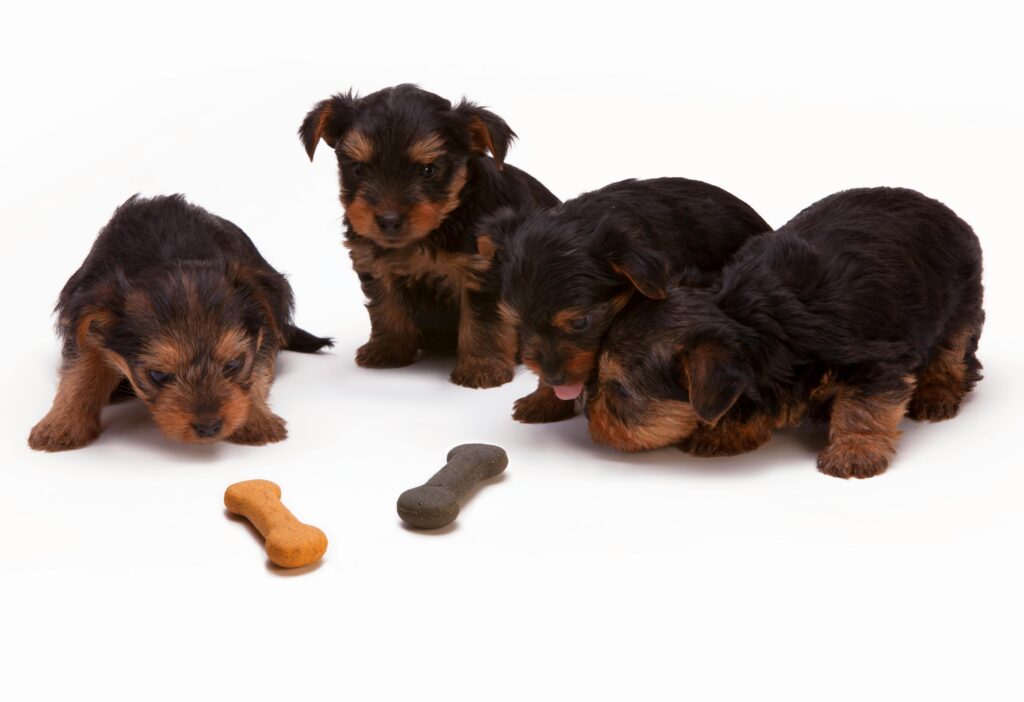
🩺 Step 8: Schedule the First Vet Visit
Within the first 5 days, book an appointment for:
- A full physical check
- Vaccine review
- Parasite prevention plan
- Microchipping (if not already done)
Bring all documents you received at adoption.

🎓 Step 9: Start Basic Training Early
Training starts the moment your puppy enters your home.
Focus on these 3 commands:
- Sit — basic obedience
- Come — recall for safety
- No — gentle correction
Reward with small treats and praise. Keep sessions short (5–10 minutes).

💬 Step 10: Socialization and Confidence
Socialization shapes your puppy’s behavior for life.
Expose them gradually to:
- Different people and voices
- Safe dogs and puppies
- Car rides, parks, grooming sounds
⚠️ Wait until vaccinations are complete before public exposure.
💡 Positive experiences during the first 3 months = confident adult dog later.
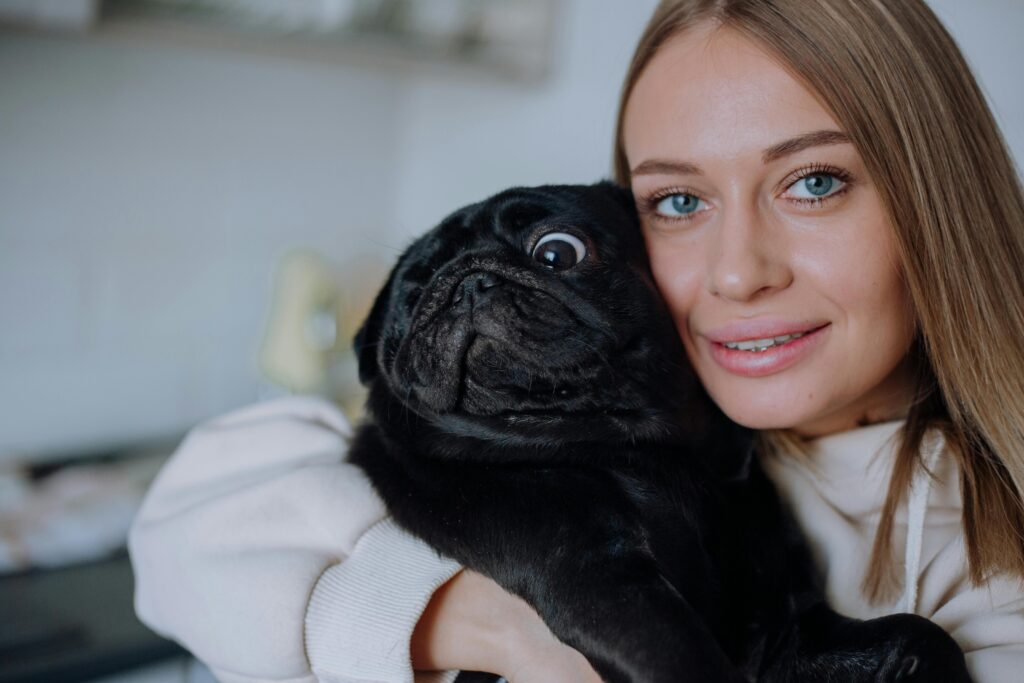
💕 Step 11: Building the Bond
Bonding starts with trust, patience, and presence.
| Activity | Purpose |
|---|---|
| Playtime | Builds joy and connection |
| Gentle grooming | Builds comfort and touch tolerance |
| Quiet cuddling | Reinforces safety and attachment |
| Training | Strengthens communication |
🐾 A well-bonded puppy learns faster and feels emotionally secure.
🚫 Common Adoption Mistakes to Avoid
| Mistake | Why It’s a Problem | Better Way |
|---|---|---|
| Bringing puppy home on a busy day | Overstimulation | Choose a calm weekend |
| Skipping crate training | Leads to anxiety | Introduce crate gradually |
| Overfeeding | Causes stomach upset | Feed in measured portions |
| Lack of patience | Breaks trust | Keep calm, use positive reinforcement |
🎯 Your patience in week 1 defines your puppy’s confidence for years to come.
🐕 Conclusion
Adopting a puppy is the beginning of a beautiful friendship.
The secret to success? Preparation, patience, and love.
By setting clear routines, visiting the vet early, and creating a calm environment, you’ll help your new companion feel safe, confident, and loved from day one.
💖 Adoption isn’t the end of a journey — it’s the start of a lifelong bond.
💬 Puppy Adoption FAQ
How old should a puppy be before adoption?
Ideally between 8–12 weeks old — younger puppies still need their mother’s care.
How long does it take a puppy to adjust?
Most settle within 2–3 weeks once a routine is consistent.
What’s the best way to stop crying at night?
Keep the crate nearby, use a soft toy or heartbeat plush, and stay calm.
Should I take time off work after adoption?
Yes — ideally 3–5 days to help your puppy transition smoothly.
How do I prepare my kids for a new puppy?
Teach them to stay gentle, avoid sudden movements, and respect the puppy’s rest space.

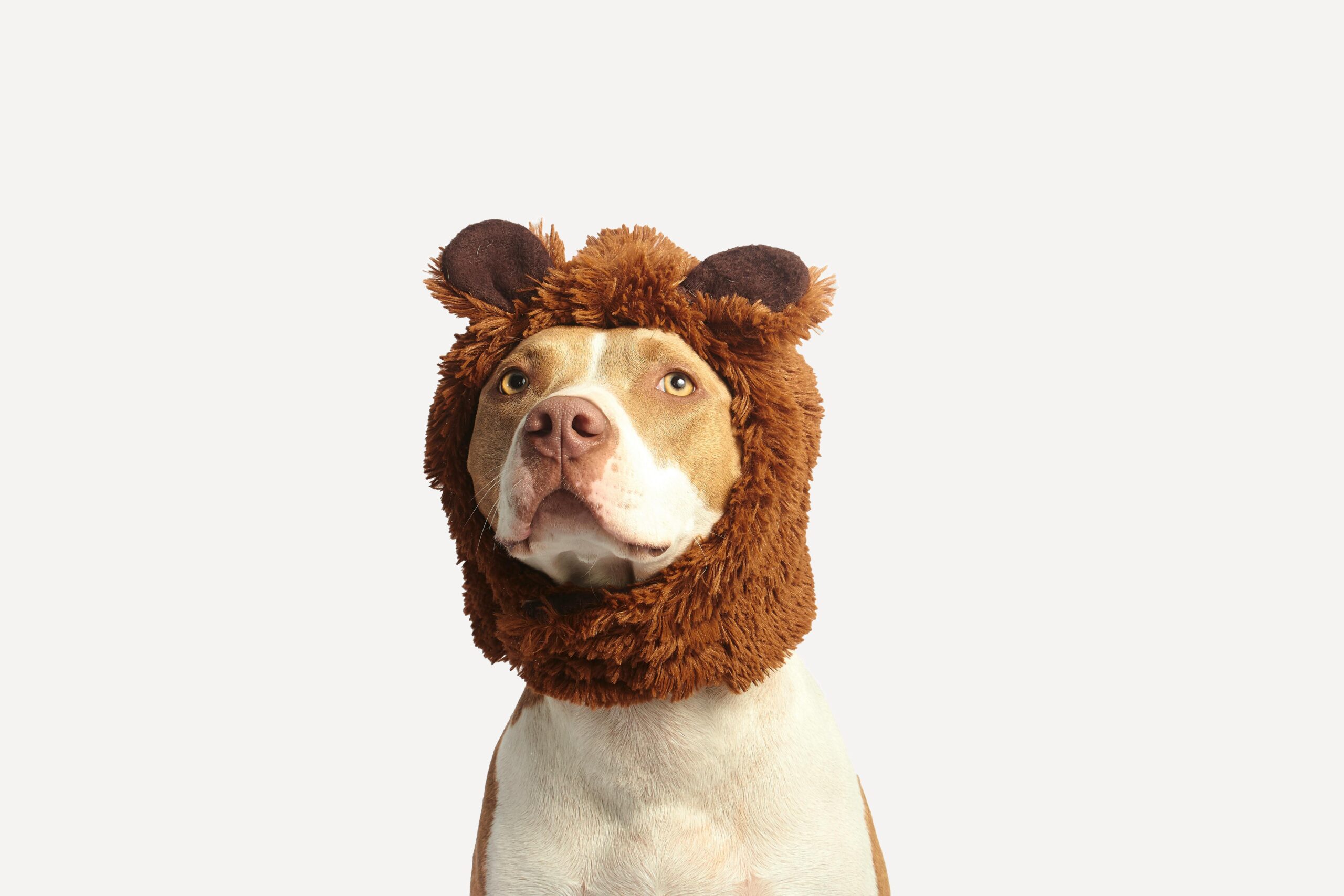
Leave a Reply